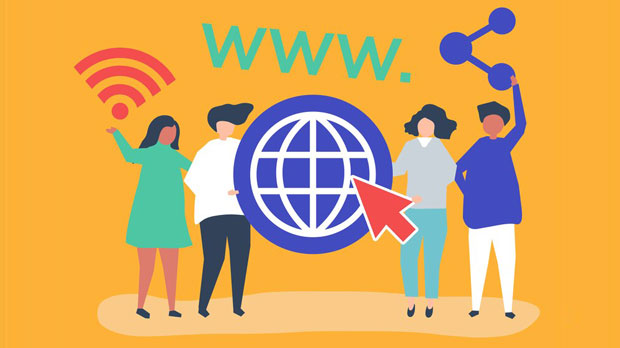Smart Proxy refers to a modern, advanced type of proxy service designed to enhance online privacy, security, and accessibility. It functions as an intermediary between a user and the internet, helping to mask the user's original IP address, making online activities more anonymous and secure. Smart Proxy offers users the ability to access restricted content, manage multiple online tasks without interference, and protect their digital identity from unwanted tracking or cyber threats. The key features of Smart Proxy services include high anonymity, improved speed, multi-location access, and robust security protocols, all of which cater to various business and personal needs for seamless internet usage. Understanding Smart ProxySmart Proxy is an internet technology solution that helps users to interact with the web through intermediary servers. When using a Smart Proxy service, a user's requests are routed through one or more proxy servers before reaching the intended destination. This helps in masking the user’s IP address and encrypting data traffic. This technology is particularly useful for businesses and individuals who want to maintain their privacy while accessing the internet or manage web-related tasks more effectively.It is especially beneficial in scenarios where users need to bypass geo-blocked content, conduct web scraping, or test websites from different locations. Essentially, Smart Proxy provides greater flexibility and control over how internet data is transmitted and accessed, ensuring that users can surf the web securely and anonymously.Key Features of Smart ProxySmart Proxy services come with several features that differentiate them from traditional proxy services. The following outlines the most important characteristics:1. High Level of AnonymityOne of the main features of a Smart Proxy is the ability to mask the user’s original IP address. By doing so, it ensures that online activity is not easily traceable to the user’s physical location or personal identity. This high level of anonymity is essential for privacy-conscious users who are keen on keeping their online behavior confidential. Additionally, this anonymity protects users from tracking cookies, targeted ads, and other forms of digital surveillance.2. Increased Security and EncryptionSmart Proxies often employ sophisticated encryption protocols, making the data sent and received between the user and the internet highly secure. This ensures that any sensitive information, such as login credentials, financial data, or other personal details, is kept safe from hackers and cybercriminals. Smart Proxy services act as a secure middle layer, preventing unauthorized access to private communications and protecting users from potential online threats.3. Access to Geo-Restricted ContentAnother standout feature of Smart Proxy services is their ability to bypass geo-blocks. Many websites, streaming platforms, and online services restrict access to content based on the user's geographical location. With a Smart Proxy, users can connect to servers in different countries, effectively masking their true location and accessing content that is otherwise unavailable in their region. This is highly beneficial for users who want to view international content or access services restricted in their home country.4. Multiple IP Addresses for Enhanced FlexibilitySmart Proxy services typically provide access to a pool of IP addresses across different regions and countries. This allows users to rotate IPs and avoid IP-based restrictions, making it easier to manage multiple accounts or conduct online activities without being detected or blocked. This flexibility is particularly useful for businesses that need to perform bulk data scraping, web automation, or competitive research across multiple geographic locations.5. Fast Connection Speeds and Reliable PerformanceSmart Proxy services are designed to offer fast connection speeds and reliable performance. While using proxies can sometimes result in slower internet speeds, well-designed Smart Proxy systems employ advanced technologies and optimizations to minimize latency and ensure smooth internet usage. Users can benefit from uninterrupted access to content and services, even when using a proxy server, which is crucial for tasks that require real-time data or interactions.6. Scalability for Business UseSmart Proxy services are often scalable, making them ideal for both small-scale and large-scale usage. For businesses that rely on data scraping, market research, or automated testing, Smart Proxy provides the scalability needed to handle vast amounts of data. Businesses can increase or decrease their usage based on their requirements, allowing them to manage operational costs effectively.7. Customizable Proxy SettingsMany Smart Proxy services offer customizable settings that allow users to tailor the service to their specific needs. For example, users may be able to choose the type of proxy (such as residential, data center, or mobile), the geographical location of the proxy servers, and the protocol to be used (such as SOCKS5, HTTP, or HTTPS). This customization ensures that users can have full control over their proxy usage, optimizing it for various tasks like scraping, SEO, or browsing.Why Use a Smart Proxy?Smart Proxies are a valuable tool for anyone looking to enhance their online security and flexibility. Whether for personal use or business purposes, the benefits of using Smart Proxy are extensive. Here are some common use cases:1. Online Privacy ProtectionIn today’s digital age, privacy is a growing concern. Smart Proxies allow individuals to browse the web without revealing their true identity, protecting them from data breaches, identity theft, or being tracked by advertisers. This is particularly useful for users who are concerned about online privacy and want to avoid being surveilled by websites, hackers, or other third parties.2. Web Scraping and Data GatheringWeb scraping is a common practice for gathering large amounts of data from websites for analysis or research. However, websites often implement restrictions to prevent excessive requests from a single IP address. Smart Proxy services help mitigate this by allowing users to rotate IP addresses, ensuring that scraping activities are not flagged or blocked by the target website.3. Unblocking Geo-Restricted ContentSmart Proxies are particularly useful for accessing content that is restricted in certain regions. Whether it's watching shows on international streaming platforms or accessing region-specific websites, users can use a Smart Proxy to bypass these blocks and enjoy unrestricted internet access.4. E-commerce and SEO ManagementFor businesses involved in e-commerce or SEO (Search Engine Optimization), Smart Proxy services are crucial for managing multiple accounts, conducting market research, and tracking competitor data without raising suspicions. By using a rotating pool of IPs, businesses can automate tasks like checking product prices, monitoring search engine rankings, or managing several e-commerce accounts without risking account bans.Smart Proxy services provide an advanced and highly effective solution for enhancing online privacy, security, and accessibility. By offering features such as anonymity, robust encryption, geo-restriction bypassing, and scalable performance, Smart Proxies are invaluable tools for both individuals and businesses. Whether you need to secure your online activities, conduct research, or access content from anywhere in the world, Smart Proxy ensures that you can do so with greater control, flexibility, and confidence.
Apr 03, 2025
![arrow]()




























































